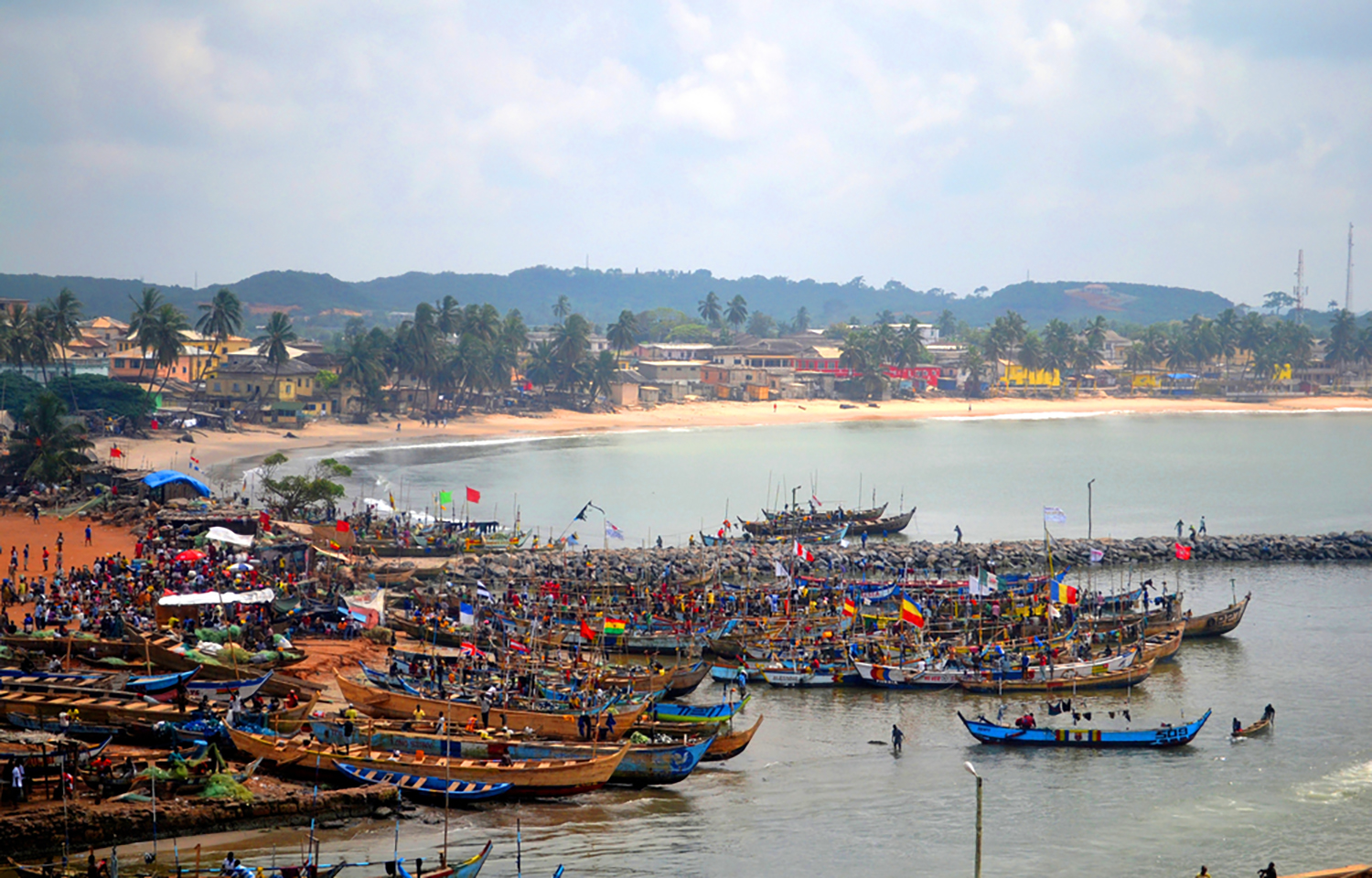Ghana’s Trades Union Congress (TUC), a country-wide body with membership that includes various workers’ organizations, has released a policy concerning workers’ rights in the nation’s fishing industry.
The policy, “Workers Policy on Decent Work in Fishing in Ghana,” which was prepared with the support of the International Labor Organization (ILO), identifies major challenges facing Ghana’s fishing industry, such as forced labor, and outlines strategies through which the country can guarantee rights in both marine and inland fisheries.
“The sector is noted for occupational safety, health, and environment (OSHE) shortfalls, deplorable living and working conditions on fishing vessels, and dwindling incomes, as well as forced labor, modern day slavery, and human trafficking,” TUC Secretary General Anthony Baah said.
Other issues that Ghana’s fisheries sector faces, and which the TUC’s policy is trying to help mitigate, include “problematic” Chinese vessels in Ghanaian industrial trawl space that employ African fishers. The TUC cites an example in which a fisher reported witnessing the death of a colleague who fell sick with cholera aboard a Chinese vessel because the crew refused to bring him ashore for treatment.
“Even though their vessels have medicines, medicine boxes are kept with the captains, and inscriptions on the medicines are in the Chinese language,” the TUC’s policy said.
The policy also cited Chinese-owned trawlers operating in Ghanaian waters that feature “awful living conditions, including poor food and drink.” Furthermore, onboard observers typically face threats and have even died working their jobs.
Baah largely attributed these issues to “inadequacies in [Ghanaian] legislative framework and weak enforcement of laws and regulations.”
“The policy is expected to strengthen the partnership between trade unions and other stakeholders in the fishing industry to ensure respect for the rights and interests of fishers,” Baah said.
The policy lays out to steps to alleviate these issues, including trade unions in Ghana developing annual action plans and incorporating their plans into individual plans of action and budgets.
“The TUC and its member unions seek to ensure that workers in Ghana work in dignity, have employment security and living wage, have access to social security, exercise their rights at work, and participate effectively in decisions that affect their lives,” the policy said.
The document has also set out several measures to achieve fair working conditions for vessel workers, consistent income for fishing communities, and implementation of legislation and regulations for protections of sea workers.
For instance, the TUC has committed to launching education campaigns aimed at stakeholders and fisher and has also recommended the ratification and implementation of the ILO’s Work in Fishing Convention #188 of 2007, which provides basic requirements for people working aboard fishing vessels with guidelines of minimum wage, medical examination, conditions of serves, work contracts as well as repatriation procedures.
“The non-ratification of C188 deprives fishers in the country from benefiting fully from the standards that C188 sets for fishers and fishing vessels engaged in commercial fishing operations,” the policy said.
The TUC’s policy document also proposes increasing he number of labor inspectors in the country to carry out more regular inspections and publish quarterly labor inspection reports.
Recruiting processes for fishers should also be standardized, with Ghanaian fishers educated on proper recruitment procedures and employment contracts, both of which should be easily accessible for inspection, the document said.
“[The new policy] provides the blueprint to guide trade union efforts toward ameliorating decent work deficits in fishing,” Baah said.








